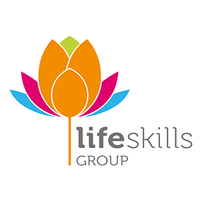In the hustle and bustle of the teaching profession, educators often find themselves prioritising the wellbeing of their students above their own. However, neglecting self-care can lead to burnout, decreased job satisfaction, and ultimately impact the quality of education provided. Moreover, teachers serve as role models for their students, and by practicing self-care, they can instil healthy habits in the next generation.
Here are 10 practical tips for teachers to prioritise their own wellbeing and model self-care to their students:
- Set Boundaries: Establish clear boundaries between work and personal life. Designate specific times for work-related tasks and stick to them, allowing time for relaxation and hobbies outside of teaching.
- Prioritise Sleep: Ensure you get enough sleep each night to recharge both physically and mentally. Adequate rest is crucial for cognitive function, mood regulation, and overall well-being.
- Practice Mindfulness: Incorporate mindfulness practices such as meditation, deep breathing exercises, or yoga into your daily routine. These activities can help reduce stress, improve focus, and promote emotional resilience.
- Stay Active: Make time for regular physical activity, whether it's going for a walk, attending a fitness class, or engaging in sports. Exercise not only benefits physical health but also boosts mood and energy levels.
- Eat Nutritious Foods: Fuel your body with a balanced diet rich in fruits, vegetables, whole grains, and lean proteins. Avoid excessive caffeine and sugar, which can lead to energy crashes and mood swings.
- Connect with Peers: Cultivate supportive relationships with colleagues who understand the challenges of teaching. Lean on each other for advice, encouragement, and camaraderie.
- Set Realistic Goals: Break down larger tasks into smaller, manageable goals to avoid feeling overwhelmed. Celebrate your achievements along the way, no matter how small, and practice self-compassion when things don't go as planned.
- Engage in Creative Outlets: Pursue hobbies and interests outside of teaching that bring you joy and fulfilment. Whether it's painting, playing music, or gardening, engaging in creative activities can be a therapeutic outlet for stress relief.
- Unplug Regularly: Take breaks from technology and screens to disconnect from the constant demands of work. Set aside dedicated time each day to engage in activities that don't involve electronic devices, such as reading a book or spending time outdoors.
- Seek Support: Don't hesitate to seek professional help if you're struggling with stress, anxiety, or other mental health challenges. Counselling, therapy, or support groups can provide valuable resources and strategies for coping with the demands of teaching.
By prioritising teacher self-care and modelling healthy habits, educators not only improve their own wellbeing but also set a positive example for their students. Teaching young people the importance of self-care early on equips them with lifelong skills for managing stress, building resilience, and leading fulfilling lives. Remember, taking care of yourself isn't selfish—it's essential for your effectiveness as an educator and your overall happiness and fulfilment in life. Happier teachers = Happier schools! Wouldn't you agree?
.png?width=500&height=374&name=Logo_transparent%20(2).png)





